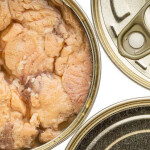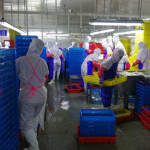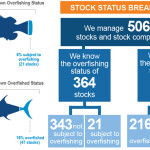Aquaculture leaders in the United States and Canada worry that the Cooke Aquaculture salmon escape in Washington state could lead to additional regulations on all ocean net pen operations.
Washington officials estimate that more than 100,000 salmon still remain in the waters surrounding Cypress Island a month after the massive escape occurred. Many of the Atlantic salmon have been spotted in Canadian waters as well, leading Native groups, environmental groups, legislators and others to voice their concerns about ocean aquaculture operations as a whole.
As Washington officials continue to conduct their investigation surrounding the salmon escape, the Washington State Department of Fish and Wildlife has decided not to grant any permits on new Atlantic salmon nets or pens.
Additionally, several U.S. lawmakers have called for the federal government to stop all permitting for new net pens or expansions to existing pens nationwide. U.S. Senators Maria Cantwell (D-Washington) and Patty Murray (D-Washington), along with several other state legislators, have urged the U.S. Army Corps of Engineers to halt permitting for aquaculture net creation and expansion.
The lawmakers have also called for the prioritization of requests to update or maintain existing pens, and asked NOAA and the Army Corps in a letter delivered to both agencies to conduct a review of the “integrity and operation of all currently operating net pen structures to address concerns of further accidents at existing facilities.”
Such an unprecedented farmed salmon escape could lead to legislation against ocean net pen operations that is not warranted or well thought-out, aquaculture organizations worry.
“I am concerned that the policy reaction might not be advised by the best science,” Sebastian Belle, executive director of the Maine Aquaculture Association, told SeafoodSource. “I worked for a regulatory agency at one point in my career, and I learned that, when you develop public policy in the context of some event that is controversial, often the public policy is not as well thought-through as it might be.”
“Any time there is an event that happens close to home, regulators and governments are going to be aware and are going to review the plans they have in place and the regulations they have for dealing with things,” Jeremy Dunn, executive director of the British Columbia Salmon Farmers Association in British Columbia, Canada, told SeafoodSource.
While Fisheries and Oceans Canada may pay more attention to farmers’ containment management systems (CMS) than they had in the past, “I know the regulations we have in B.C. are strong and sound," Dunn said. “There have been significant changes to how our members are regulating and their record of compliance has been 100 percent over the past few years.”
In the first few years of ocean-based farming in the province, at least 100,000 fish total likely escaped, according to Dunn. However, over the past four or five years, escapes have fallen to low double digits of individual fish escaping annually.
Legislators’ assertions that ocean-based aquaculture has more negative impacts on the environment than land-based aquaculture is “not supported by the science,” Belle said.
For example, after Maine aquaculture producers and environmental groups jointly developed a rigorous containment management system after several meetings in 2002, they found that fish escapes from land-based farms – while very minimal – were higher than from ocean-based farms. Since the CMS was implemented in Maine, there has been only one fish escape incident, which happened to be ocean-based.
“I don’t believe it matters whether it [the farm] is land-based or ocean-based; it is how it is managed,” Belle said.






